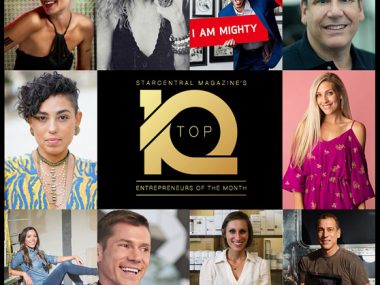In 2017, brothers Alex and Clint Williams, and Founding Partner Dave Madrid poured their skills and entrepreneurial drive into starting Solar Energy Partners, also known as SEP. After developing their business model around the philosophy that “more options, means more deals, which means more savings,” the trio went to work partnering with many of the largest, highest rated companies in the solar industry. From there, SEP began to take off.
This growth coincided with the onset of the COVID-19 pandemic, which limited social interactions and meant salespeople could no longer work on their original direct-to-home, door-to-door sales model. Additionally, tariffs implemented on solar panel imports made the challenge to stay operational even more monumental. However, Alex, Clint, and Dave stepped up to the challenge and approached it with innovation and proactivity, pivoting their operations and bringing their business to fruition during a time when many were struggling. During this period, SEP experienced such high growth they were able to provide employment opportunities for more than 1000 new representatives, including many struggling musicians, actors and others in creative industries across Southern California.
In March of this year, as the pandemic began to wind down and at the peak of their initial expansion, Alex, Clint, and Dave announced a merger with The Standard, accelerating SEPs’ already rapid growth and adding three members to their leadership team, Todd Jensen, Brian Hutchings, and Brad Holm.
StarCentral magazine recently caught up with the Solar Energy Partners Founders to discuss their journey in starting and growing SEP, and to see what’s on the horizon for the team as the solar revolution sparks on.
After the idea for SEP was conceived, was it a challenge to get the venture up and running?
Alex: Because we already had experience in the solar industry, starting our own venture wasn’t a farfetched notion. Initially, SEP was made up of two brothers, Clint and I, who set out to solve a major problem. Like many ventures, our start was slow but picked up speed on a whim. All of a sudden we had this momentum and were growing exponentially. We went from servicing just two locations to more than 10 by the end of 2020, and we’re showing no signs of slowing down.
What are SEPs’ primary motivations?
Brian: Our ultimate goals are also the foundations of our business; authenticity and doing the right thing, but our primary focus is to help people. Internally, we aim to build a world-class sales organization, where we develop top consultants who are passionate about their work. Externally, we work around the clock to offer the best, most flexible and customizable options, so all of our customers can come out of dealings with us feeling fulfilled and confident they have secured the best deal possible.
What is one word that summarizes the SEP leadership team as solar entrepreneurs? Why?
Brad: Innovation! As a company, we’re always looking to the horizon for what’s next, and it’s safe to say the way we approach business is not typical. While we do employ the gold standard of what has made so many solar businesses successful, it’s a continuous goal to discover and push the boundaries of the solar landscape and what we can offer value-wise to make SEP even more unique.
What are three key elements for starting and running a successful business?
Clint: Being an entrepreneur and having your own vision means you have to hold yourself accountable for the successes and failures of the business. On a wider scale, however, there are some elements that I’ve found which are essential in building success:
- Passion: Because entrepreneurship requires a lot of hard work, you need to have the underlying passion and motivation to get up every day and be enthusiastic about what you are doing.
- Training and Knowledge: Make sure tools and educational resources are available at all times, both for yourself and your team. Without this, it’s easy to become overwhelmed, which can make the passion fizzle out.
- Culture: This is the aspect that keeps the wheels turning in any organization. Businesses with a solid, positive culture perform better, attract and retain better staff, and survive longer. At SEP, we want our staff to be so happy working with us that they feel like it’s the last job they’ll ever want to have.
Which challenges has SEP come up against in growing the business? How did you overcome this?
Dave: SEP came to fruition in the midst of the pandemic which was incredibly challenging. Being founded on a direct-to-home, door-to-door model, we had to pivot in our alternative ways of reaching customers, such as focusing on working online and referral-based meetings. From this challenge, we’ve become much more steadfast and focused as an organization, and it’s really shown our strength in being a forward-thinking and creative business entity.
When did you first discover and express your entrepreneurial flair?
Todd: By the end of 2016, I had been working in solar for three years when I noticed that, from an infrastructural perspective, there were a lot of factors of the industry that were out of my control. I also noticed that there was a huge potential to offer a better, more comprehensive experience to customers and consultants alike. With that, I decided to depart from ‘the mothership’ and start my own operation. There were distinct and attainable opportunities for better, considered, and streamlined projects and the option to qualify and work with our own clientele, which made a huge difference to the way I worked and changed my life.
What was life like before Solar Energy Partners? Was solar a part of your life?
Alex: Before founding Solar Energy Partners, life was great – I believe life can always be fantastic, even during times of challenge if you choose to make it that way. Anyway, prior to starting SEP, I worked in the solar energy industry with a company that was more concerned with profits than people and placed more emphasis on sales overtraining. To me, that was a clear rift in their business model, and I knew I had the expertise to fill it.
Who are your role models? What is the best piece of advice you have been given or discovered?
Brian: The people I look to are typically individuals that have worked hard for their success and are able to motivate the people around them, Gary Vaynerchuk is a great example of this. As for advice, the most useful pieces I have encountered center around ‘paying the price’ – as in, anything you do in life that’s worthwhile comes with a cost, and sometimes that’s blood, sweat, and tears.
What is the most important leadership lesson SEP Founders have learned?
Dave: The most important leadership lesson learned throughout this process is the power of resilience, consistency, communication, and determination. To build a cutting-edge business with both the scale and vision to grow and truly make an impact on the world, we’ve had to incorporate these lessons in everything we do.
What advice would you give to those interested in being entrepreneurs?
Todd: Entrepreneurship is an adventure, so my best advice is: whatever you decide to do, go all-in, people who dabble generally don’t succeed because it requires dedication and hard work. Before embarking on any entrepreneurial journey, ask yourself:
- Why do you want to work for yourself?
- How are you going to be disruptive in your industry?
- Why do you want to be successful?
If you can answer these questions, you’re in the right headspace. Additionally, make sure you choose something you’re passionate about. Like Clint said earlier, you need passion to stay the course because the journey is difficult and there will be many learning curves. However, as we’re all learning, it’s through embracing these hardships that success is found.
For more information, please visit: https://solarenergy.partners















